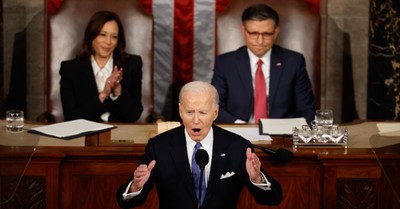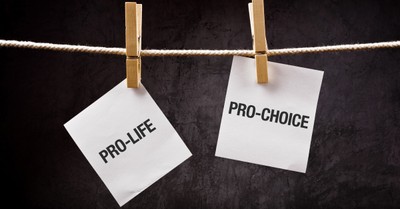
The catch-all statement exemplifies greater worldview falsehoods when it comes to protecting the preborn.

The catch-all statement exemplifies greater worldview falsehoods when it comes to protecting the preborn.
"The states will determine by vote, or legislation, or perhaps both, and whatever they decide must be the law of the land – in this case, the law of the state," the former president said in a video. "Many states will be different. Many states will have a different number of weeks… at the end of the day it is all about the will of the people."
During opening arguments on March 26, 2024, a majority of Supreme Court justices appeared to be doubtful of a nationwide ban or limits on mifepristone, the primary drug used for medical abortions.
Max Lucado wrote, "God sanctifies human life. Every beating heart matters to God. Whether that life is in the womb of a mother, the cell of a prison, the hallway of a convalescent home, or the corner office of a Wall Street high rise, that life is holy to God." Is it holy to you?
President Biden pledged during his State of the Union speech Thursday to stand for legalized abortion as he asked Americans to send him a Democratic-controlled Congress that would restore the rights guaranteed under Roe v. Wade nationwide.
On Monday, France became the first country in the world to enshrine abortion in its national constitution after an amendment was passed in an overwhelming vote.
"Every time this has been put to the public for a vote since the casting down of Roe, we have lost. And we’ve lost not only in blue states like Michigan. We have lost in red states like Ohio, Montana, Kentucky. And these are indicators that there’s something not right in the worldview structures that we had assumed all along were in our favor, and they’re not. And that changes what our job description looks like post-Roe."
God values all life. While many misconceptions are circulating in our lost and broken world, God tells us life begins with formation in the womb (Psalms 139:13-16, Jeremian 1:5, Luke 1:41-43).
President Joe Biden recently refuted former President Trump’s claim that he supports “abortion on demand” even though Biden vows to restore Roe V. Wade.







